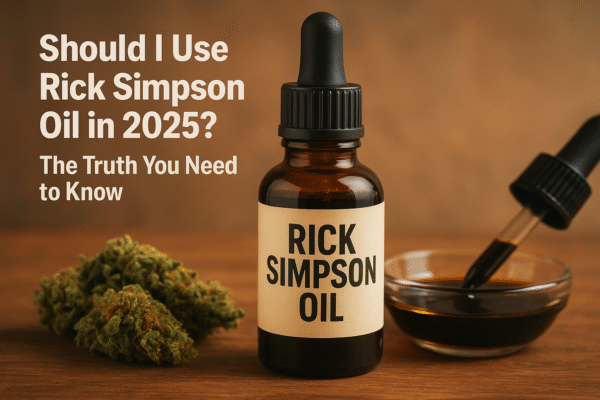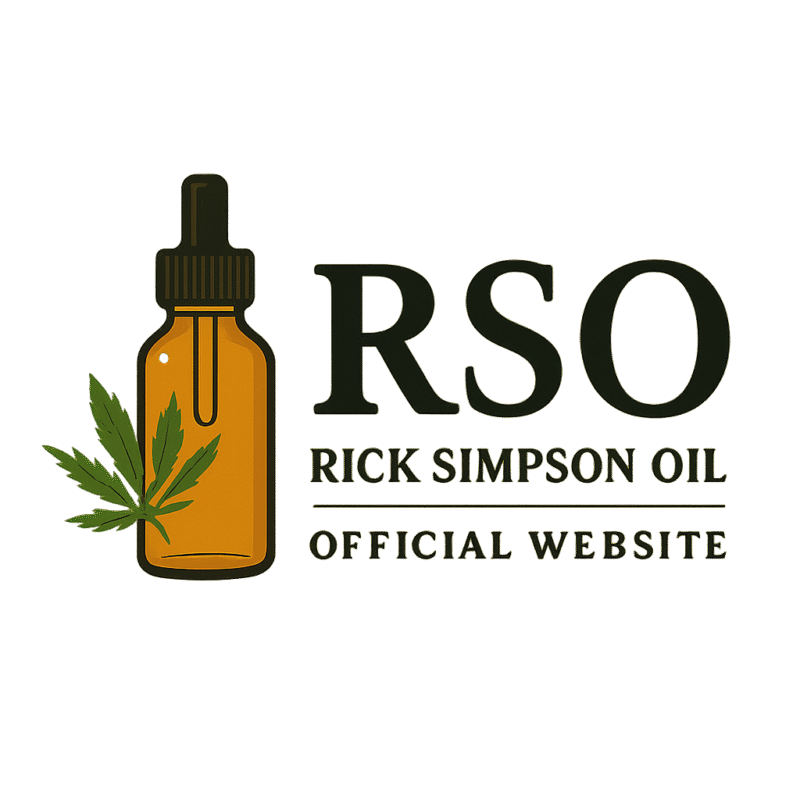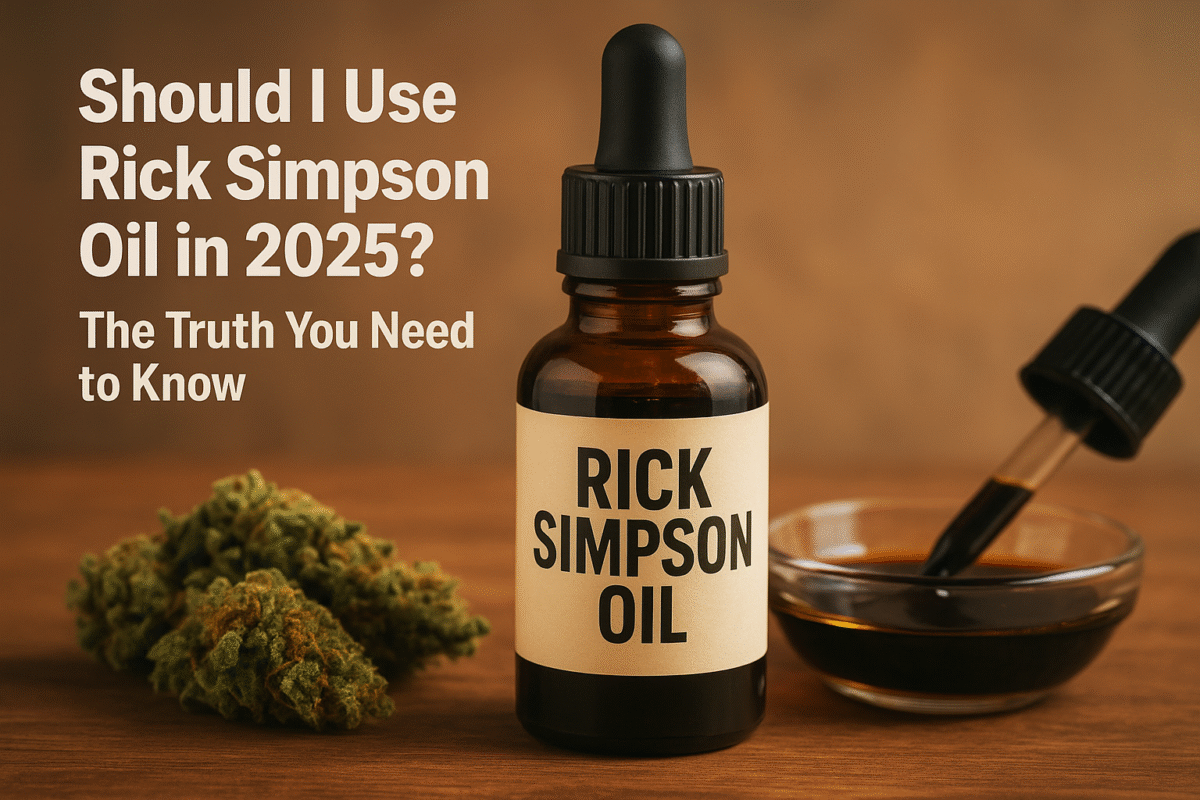Uncategorized
Should I Use Rick Simpson Oil in 2025
Should I Use Rick Simpson Oil in 2025? The Truth You Need to Know
Introduction: Why People Are Asking About Rick Simpson Oil in 2025
Rick Simpson Oil (RSO) has been a hot topic in the alternative medicine and cannabis community for over a decade. In 2025, the debate is stronger than ever — should you actually use RSO for health and healing, or are the risks still too high? This comprehensive guide explores the science, safety, legality, and medical perspective of using Rick Simpson Oil in today’s world.
What Exactly Is Rick Simpson Oil (RSO)?
The Origins of Rick Simpson Oil
Rick Simpson, a Canadian engineer, created the oil that bears his name in the early 2000s. After claiming it helped him recover from skin cancer, he began advocating for its use. His story went viral, and since then, countless users have replicated his method — producing a potent, THC-rich cannabis extract known as Rick Simpson Oil.
How RSO Is Made: Extraction and Potency
RSO is made by soaking cannabis buds in a solvent (usually ethanol or isopropyl alcohol) to extract cannabinoids, then evaporating the solvent to leave a thick, tar-like oil. The result is a substance high in THC (up to 90%), far stronger than typical cannabis oil. Because it’s not standardized, its potency and purity can vary significantly, posing safety risks.
The Claimed Health Benefits of Rick Simpson Oil
RSO for Cancer: Myth or Reality?
One of the most widespread claims about RSO is that it can “cure cancer.” However, as of 2025, no clinical evidence supports this. While lab tests on animals have shown cannabinoids may slow tumor growth in some conditions, no large-scale human studies confirm RSO as an effective cancer treatment. Using it in place of chemotherapy or radiation is strongly discouraged by medical professionals.
RSO for Pain, Anxiety, and Sleep Disorders
That said, many people use RSO to manage pain, inflammation, and insomnia. The high THC levels can provide strong sedative and analgesic effects, making it potentially helpful for those struggling with chronic pain or sleep issues. However, results vary, and some users experience anxiety or paranoia — especially with higher doses.
Other Potential Uses Still Being Studied
Preliminary research hints that cannabinoids in RSO might help with epilepsy, multiple sclerosis, and neurodegenerative diseases, but scientific confirmation is still pending. Until more data is available, RSO remains an experimental supplement, not a proven therapy.

What Does the Science Say in 2025?
Recent Research and Clinical Studies
Since 2020, researchers have increased interest in the medical potential of cannabis extracts. In 2025, studies continue to focus on THC’s anti-inflammatory and neuroprotective effects. However, most clinical trials still rely on regulated medical cannabis, not homemade RSO, which makes scientific conclusions about RSO’s specific effects limited.
What Medical Experts Are Saying
Leading oncologists and cannabis researchers caution patients against using unregulated cannabis oils like RSO without supervision. While cannabinoids can be part of symptom management, experts stress the need for lab-tested, legally obtained products instead of DIY extracts that may contain residual solvents or contaminants.
Safety and Side Effects of Using Rick Simpson Oil
THC Levels and Psychoactive Effects
RSO’s extremely high THC content can trigger intense psychoactive experiences — including euphoria, dizziness, anxiety, or confusion. These effects make it unsuitable for beginners or those sensitive to THC.
Possible Drug Interactions and Allergic Reactions
RSO can interact with prescription drugs such as sedatives, antidepressants, and blood thinners. It may also cause mild allergic reactions or digestive issues in sensitive individuals.
Why Dosage Control Matters
Because RSO is so potent, dosing must be done carefully. Many advocates recommend a gradual “start low and go slow” approach. However, without medical oversight or lab testing, controlling dosage accurately is almost impossible.
The Legal Status of Rick Simpson Oil in 2025
Global Overview of Cannabis Oil Regulations
In 2025, the legality of RSO depends entirely on where you live. In countries like Canada, parts of the U.S., and some European nations, regulated cannabis oils are legal under strict conditions. In contrast, many other regions still classify RSO as an illegal substance due to its THC content.
Buying RSO Safely: What to Look For
If RSO or cannabis oils are legal in your area, only buy from licensed dispensaries that provide third-party lab reports. Avoid homemade or black-market oils that may contain harmful solvents or inaccurate THC levels.
Should You Use Rick Simpson Oil in 2025? — A Balanced Perspective
Who Might Benefit from It
People who suffer from chronic pain, sleep problems, or chemotherapy-related nausea may find RSO or other cannabis extracts beneficial — if used responsibly and legally. Always discuss cannabis use with a healthcare provider familiar with medical marijuana.
Who Should Avoid It
Those with mental health conditions (like schizophrenia), heart disease, or medication sensitivities should avoid RSO. Pregnant or breastfeeding women should also steer clear due to unknown risks.
FAQs About Rick Simpson Oil (2025 Edition)
Q1. Is Rick Simpson Oil legal in 2025?
It depends on your country or state. In many regions, high-THC oils are still controlled substances.
Q2. Does RSO cure cancer?
No clinical evidence supports this. It should never replace approved medical treatments.
Q3. Can I make RSO at home safely?
Homemade extraction with solvents can be dangerous and is not recommended.
Q4. How is RSO different from CBD oil?
RSO is high in THC (psychoactive), while CBD oil usually has minimal THC and different therapeutic properties.
Q5. What’s the safest way to use RSO?
Only under medical supervision and from a legal, lab-tested source.
Q6. Are there alternatives to RSO?
Yes. Regulated medical cannabis oils and pharmaceutical cannabinoids like Epidiolex or Sativex offer safer, controlled options.
Conclusion: Making an Informed Choice About RSO in 2025
While Rick Simpson Oil remains a topic of fascination, science still hasn’t caught up with the claims. In 2025, the best approach is to remain cautious, informed, and guided by medical expertise. Use RSO only if it’s legal, lab-tested, and medically approved — and never as a substitute for proven treatment.

